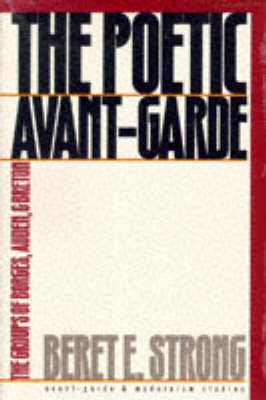Avant-garde and Modernism Studies
1 total work
A literary and cultural study of three diverse manifestations in artistic exploration in the 1920s and 1930s - the groups surrounding Jorge Luis Borges, W.H. Auden, and Andre Breton. These groups were composed of poets and writers who made use of the avant-garde's characteristic modes of self-expression: the publication of small journals; unorthodox attention-getting tactics; and interaction with the mainstream press. However, their differing aesthetic, social and political agendas illustrate the broad range of avant-gardism in the interwar era. The book examines the choices these three groups made when their radical goals collided with the forces of social and political change in the 1920s and 1930s, highlighting the disparity between their rhetoric and their actual achievements. It focuses on the avant-garde's struggle to reconcile contradictory imperatives: a desire to be radically new while at the same time finding an audience that would allow it to survive.
